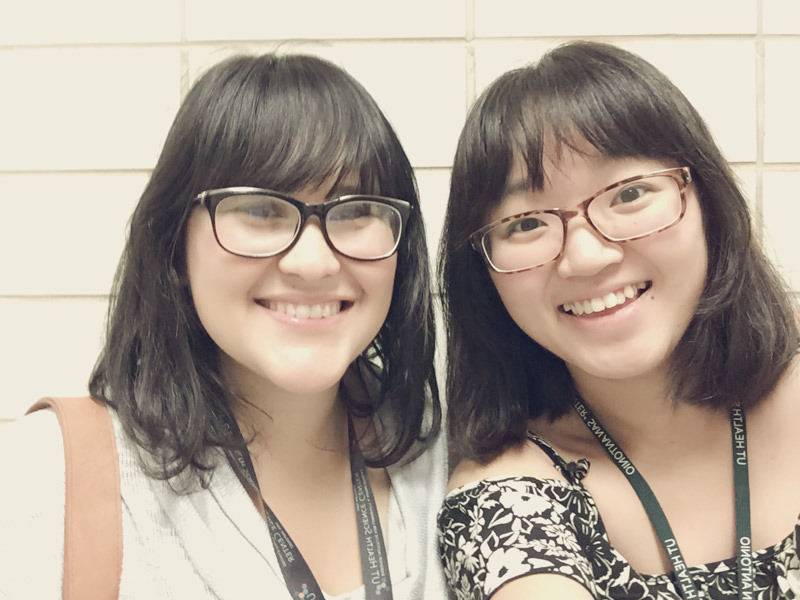Final Words: Yilun Deng and the Cancer Biology Track
Congratulations to Yilun Deng in the Cancer Biology track of the Integrated Biomedical Sciences program for completing her dissertation on “Function of the Transmembrane Protein 127 Tumor Suppressor Gene in the Endosome and Lysosome.”
Please tell me about yourself, why did you pick UT Health Science Center, and your program.
 I obtained my BMED (bachelor of medicine, equivalent of MD
I obtained my BMED (bachelor of medicine, equivalent of MD
degree in the US) degree in China in 2010. During my clinical training as a
medical student, I felt frustrated that a lot of times there were only very
limited treatment options for patients with extreme diseases including cancer.
Sometimes we were able to pinpoint the diagnosis but still had to tell the
patients “I’m sorry but you’ll have to go through extremely harsh treatments
which may or may not help you.”
It is then that I realize that understanding more about the biology underlying the disease is required for us to eventually apply this knowledge to clinical practice and really help these patients. That’s why turned to biomedical research and chose UT health science because of its renowned research atmosphere and the cancer biology program.
Please provide a few sentences summarizing your dissertation. What was the experience like for you?
My study focuses on characterizing the function of a newly identified tumor suppressor gene TMEM127 and its role in regulating multiple oncogenic pathways through regulating the endosomal system.
It is not an easy journey. I had three different directions to pursue in the beginning of my study and the first two turned out to be negative. So I was really frustrated for wasting a lot of time and was afraid of getting negative results repeatedly. I’m glad my PI is always really supportive and guided me through the tough time. In the end the last direction turned out to be a great success and I was able to achieve a lot. It is the difficulties that make the achievement more precious.
Why are you passionate about your research topic? How did you first become interested in it?
 I joined the program in 2010 determined to study cancer biology. So when I first encountered Dr. Dahia’s research I was immediately caught by her experience using integrated genetics tool to study cancer-related genes.
I joined the program in 2010 determined to study cancer biology. So when I first encountered Dr. Dahia’s research I was immediately caught by her experience using integrated genetics tool to study cancer-related genes.
When I rotated in her lab, I was introduced to this newly identified tumor suppressor gene TMEM127. Dahia lab identified this gene in 2010 and it’s associated with multiple human tumors with its function largely unknown. I got really interested in this project because it provides me with exactly the experience I was looking for.
Understanding the biology of a previously unknown gene, the mutation of which leads to tumor development, is the first and critical step towards developing therapeutic intervention to conquer this disease. I am really glad I chose the Dahia lab and this awesome
project.
What was your best memory during graduate school or what did you learn?
There are many great memories here in graduate school and the best of them should be the time I spent with my UTHSCSA ladies here.
Sometimes it can be tough living in a different country away from home by myself, and my friends are my second family here. We went through up and downs of graduate school and shared important moments of our lives together. They are really best memories here.
What’s next?Now that I have completed my dissertation project, there are still many interesting leads I want to pursue following my project. I want to continue exploring some exciting possibilities suggested by my study.
Any advice for your fellow graduate students?
Negative results are also really important. They will help you narrow down your directions and sometimes reveal the real finding. Don’t be scared by them because they are your ally as well. Stay positive and carry on!
